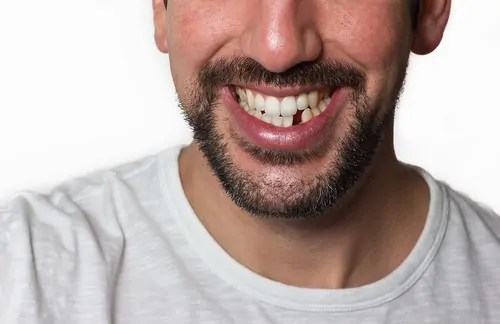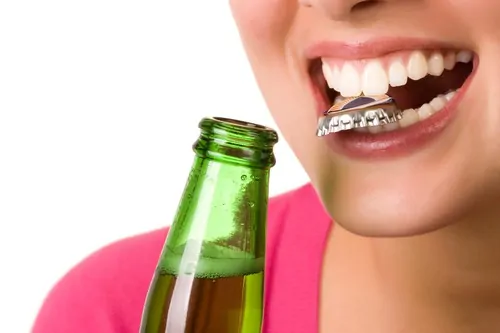Blog
26
Jan
Step-by-Step Dental Crown Procedure Guide from Your Douglasville Dentist

As a dentist in Douglasville, I frequently encounter patients who feel anxious about getting a dental crown simply because they don’t fully understand the dental crown procedure steps. Today, I’d like to walk you through exactly what happens during a crown procedure, drawing from my years of experience at my practice, Jim G. Williams DMD, in helping patients achieve healthy, beautiful smiles.
Understanding the dental crown treatment process is essential for feeling confident about your procedure. Let me guide you through each stage, from your initial consultation to the final placement of your permanent crown, explaining what you can expect at every step.
Initial Consultation and Examination
The dental crown procedure steps begin with a thorough consultation at our Douglasville dental office. During this visit, I will carefully examine your tooth structure, surrounding tissues, and overall oral health. Using digital X-rays and intraoral cameras, I can show you exactly why a crown is necessary and what we aim to achieve with the treatment.
We’ll discuss your options for crown materials, which might include porcelain, ceramic, or metal alloys, depending on the location of the tooth and your specific needs. I’ll take time to explain the benefits and considerations of each material, ensuring you’re fully informed to make the best decision for your situation.
Preparation Appointment: Creating the Foundation
The next phase of the dental crown treatment involves preparing your natural tooth to receive the crown. This appointment typically takes about 90 minutes, and I ensure my patients are completely comfortable throughout the process. Here’s what happens during this crucial stage:
First, I carefully numb the area using local anesthesia. Many of my patients are surprised by how comfortable this process is when performed with modern techniques. Once you’re fully numb, I begin reshaping your tooth to create the perfect foundation for your new crown. This involves removing any decay and building up the core of the tooth if necessary.
After the tooth preparation, I take highly detailed impressions. These precise measurements ensure your permanent crown will fit perfectly with minimal, if any, adjustment. The dental crown procedure steps at this stage are crucial for achieving optimal results, as the accuracy of these impressions determines how well your final crown will fit.
Before you leave this appointment, I place a temporary crown to protect your prepared tooth. This temporary restoration allows you to maintain normal function while your permanent crown is being crafted at our trusted dental laboratory.
Final Crown Placement: The Culmination
When your permanent crown returns from the laboratory (typically in about two weeks), you’ll return to our Douglasville dental office for the final phase of the crown process. This appointment is usually shorter, lasting about 45 minutes.
I’ll begin by removing your temporary crown and thoroughly cleaning the prepared tooth. Then comes the exciting moment of trying in your new permanent crown. I always meticulously check several factors:
- The fit against your natural tooth structure
- How it contacts neighboring teeth
- Your bite alignment when you close your teeth together
- The color match with your surrounding teeth
- The overall appearance and your satisfaction with the result
If any adjustments are needed, I’ll make them right there to ensure perfect comfort and function. Once we’re both satisfied with every aspect of the fit, I will permanently cement the crown in place using strong dental adhesive.
Aftercare and Maintenance
The final step in the dental crown procedure steps involves providing detailed aftercare instructions. While your new crown is designed to function just like a natural tooth, proper care ensures its longevity. I advise my patients about the best practices for maintaining their new crown, including:
- Maintaining excellent oral hygiene with regular brushing and flossing
- Being mindful of very hard foods that could potentially damage the crown
- Continuing regular dental check-ups to monitor the crown’s condition
Your Next Steps
If you’re considering a dental crown or have been told you need one, I invite you to experience our comprehensive approach to dental crown treatment in Douglasville. Our team is committed to making your crown procedure comfortable, efficient, and long-lasting.
Contact our office at 770-949-5393 to schedule your consultation. During our meeting, we can discuss your specific needs, answer any questions about the dental crown procedure steps, and create a customized treatment plan for your situation. We’re here to help you achieve optimal oral health with the highest standard of dental care available in Douglasville.
Don’t let concerns about the crown procedure prevent you from getting the dental care you need. With modern techniques and our experienced team, getting a crown can be a smooth, comfortable process that significantly improves your oral health and smile confidence.
Are Veneers or Crowns Better for Your Smile?

Are you considering a smile makeover and wondering whether veneers or crowns are the right choice? Both options can enhance your teeth, but they serve different purposes. Let’s dive into the details to help you make an informed decision.
Veneers
Dental veneers are thin, custom-made shells designed to cover the front surface of your teeth. They are typically made from porcelain or composite resin. Here’s what you should know about veneers:
- Veneers are ideal for improving the appearance of your front teeth.
- They correct minor cosmetic issues like chips, cracks, discoloration, and gaps.
- Veneers are durable but may need replacement every 10-15 years.
- Minimal tooth structure is removed during the process.
Crowns
Dental crowns, also known as caps, cover the entire tooth. They can be made from porcelain, metal, or a combination of materials. Here’s a closer look at crowns:
- Crowns can restore the shape, size, and strength of your tooth.
- They are used for teeth that are badly decayed, cracked or have undergone root canal treatment.
- Crowns are durable and can last 15-20 years or more with proper care.
- More tooth structure is removed compared to veneers.
Which Is Right for You?
Choosing between dental veneers and crowns depends on your specific dental needs. Here are some factors to consider:
- Extent of Damage
If your tooth is mostly intact and you want to improve its appearance, veneers may be the best choice. Crowns are more suitable for heavily damaged or decayed teeth.
- Aesthetics
Both options can provide a natural look, but veneers are often preferred for cosmetic enhancements.
- Durability
Crowns offer greater protection and durability for teeth that need extensive restoration.
- Cost
Veneers and crowns can be similar in cost, but it varies depending on the materials used and the complexity of the procedure.
Choosing between veneers and crowns can be pivotal in your journey to a better smile. Understanding the differences, benefits, and procedures will help you make the best choice for your dental health and aesthetic goals. Don’t hesitate to reach out to us at Jim G. Williams DMD in Douglasville for expert advice and personalized dental care.
How Much Do Dental Implants Hurt?

If you’re considering getting dental implants to replace missing teeth, you probably have a lot of questions for your dentist in Douglasville ranging from what’s involved with the procedure to how much it’s going to hurt. The truth is, the procedure for getting dental implants is a surgery, so some pain should be expected. However, the minimal amount of pain that’s typically associated with getting dental implants may be small compared to the benefits of a permanent solution to missing teeth.
Dental Implant Surgery
A dental implant is one of, if not the best, ways to replace a missing tooth. Implants can even replace multiple teeth in order to avoid wearing dentures or a bridge. Dental implants are a permanent tooth replacement option so there is no need for removal, soaking, or worrying about slippage. But the treatment itself can cause concern, so let’s take a closer look at the surgery itself.
- Step 1: Prep The Area
Before an implant can be placed the area needs to be fully prepped. This can mean different things for different people. If you’re already missing a tooth, there is no need for an extraction. But if a tooth isn’t healthy, it may need to be extracted by your dentist in Douglasville first. Additionally, patients may sometimes need a bone graft to prepare the jaw bone and make it stronger for the actual implant placement.
- Step 2: Post Placement
There are actually a few pieces and parts to a dental implant. The first part is the implant post which is metal and screw-like. This post is placed into a drilled hole in the jawbone and acts as an artificial tooth root. Once the post is placed, it will need time to integrate into the jawbone. This healing period can take a few months but it’s absolutely necessary in order to ensure a stable implant.
- Step 3: Abutment & Crown Placement
Once the post is fully integrated and fused into the jaw bone, your dentist will attach an abutment and then a crown on top of it. Crowns are custom made in size, shape, and color to look like a natural tooth so the restoration blends into the smile. The final result is a permanent, complete, natural-looking smile.
Dental Implant Pain
Now that we know a little more about what’s involved with getting a dental implant, let’s take a deeper look into how much pain is involved. Since dental implant treatment is in fact a surgery, patients should expect some level of pain, but it’s probably not as bad as you think. Patients shouldn’t experience any pain during the actual post placement, but they may have some discomfort for the next 10 days after surgery. If pain lasts more than 10 days, call your dentist. Excessive pain after 10 days may be a sign of an infection so it’s important to see your dentist sooner rather than later.
Dental implants are often considered the superior tooth replacement option. So if you are missing teeth or at risk for losing teeth, talk to your dentist in Douglasville about whether or not dental implants may be the best choice for you.
What Happens If You Have Extra Teeth?

Hyperdontia, a rare yet completely possible condition, causes people to have more teeth than usual. Typically, kids will have 20 baby teeth, and 32 more will erupt as they get older. But those with hyperdontia grow what are called supernumerary teeth, which are extra teeth that usually grow behind the already erupted teeth. The good news is that hyperdontia isn’t often a serious problem that requires treatment from your dentist in Douglasville.
What Causes Hyperdontia?
Hyperdontia has no known causes, but there are correlations between it and other inherited conditions such as:
- Cleft palate or lip
- Gardner’s syndrome
- Ehler-Danlos syndrome
- Fabry disease
- Cleidocranial dysplasia
Hyperdontia Signs
The most obvious sign of hyperdontia is developing more teeth after your full set of either baby or permanent teeth has already arrived. However, if the additional teeth haven’t erupted yet, your dentist in Douglasville will be able to see them developing under the gum line through dental x-rays. Hyperdontia doesn’t typically cause pain, but there can be some discomfort in the jaw or gums.
Shape & Location
The shape and location of supernumerary teeth can vary from person to person, although they’re most likely to appear behind the four front teeth. Different locations include:
- Paramolar – back by the molars
- Distomolar – in line with the molars rather than behind them
- Mesiodens – behind the incisors
And different shapes can vary from:
- Supplemental – mimics the shape of the tooth it erupts by
- Tuberculate – is tubular in shape
- Compound odontoma – looks like a bunch of smaller teeth bunched together
- Complex odontoma – shows as a cluster of tooth-like tissues
- Conical – wide at the bottom and sharp and pointy on top
How to Treat Hyperdontia
In situations when treatment for hyperdontia is recommended by your dentist in Douglasville, the typical treatment is extracting the extra teeth. However, this only usually happens when necessary. The symptoms that usually require treatment can vary from discomfort in the jaw or gums to problems with proper brushing and flossing. Other times, if a patient is simply unhappy with the way the extra teeth look, treatment and some forms of cosmetic dentistry can help. Treatment for hyperdontia should be completed sooner rather than later, so it’s important to see your dentist in Douglasville regularly for exams, x-rays, and cleanings.
Risks of Hyperdontia
Even though hyperdontia is usually not a big deal, there are some risks associated with the condition.
- Overcrowding
- Impactions
- Cysts
- Bite issues
- Difficulty brushing and flossing
- Speech impediments
- Facial deformities
If you or a family member notice that you have more teeth than you’re supposed to or feel additional teeth behind or around existing teeth, schedule an appointment with your dentist. A quick and gentle exam is the first step to determining if treatment is needed and what would be the best recommendation for you.
Pandemic Stress & Oral Health Problems

As we head into the one-year mark of this pandemic, there are still several unknowns. But one thing has remained constant the whole time — stress levels are high, and rightfully so. Stress isn’t the best thing for health, especially at times like these. Prolonged periods of high stress can put us at increased risk for heart disease, actually make our immune systems less effective, and cause some unwanted gut problems. That’s not all. Dentists have also noticed an increase in oral health problems the past year, including this dentist featured in the New York Times. In today’s blog, your dentist in Douglasville explores some ways how stress can affect your oral health.
Chipped or Broken Teeth
You know how your body reacts kind of automatically when you’re stressed out? Maybe you start to sweat even though you’re not hot. Or perhaps your heart starts beating so fast it’s all you can hear. These and other subconscious reactions happen, and they’re not always so obvious. In fact, sometimes we don’t even notice that our body reacted at all. One great example of this is when we grind or clench our teeth. Many times we’re not even aware that we’re doing it, but it can certainly cause trouble. The constant pressure of teeth on teeth during clenching or grinding can cause tooth damage such as chips, cracks, or breaks and will require treatment from your dentist in Douglasville.
Jaw Pain
Unfortunately, the problems with clenching and grinding don’t end with damaged teeth. These repeated motions over and over again can start to cause jaw pain as the muscles in the jaw joint are overworked. If this happens over a long period of time, this can develop into TMJ disorder, and the pain can become severe and lead to other problems such as headaches, neck pain, and difficulty chewing.
Gum Disease
Now, besides the problems associated with clenching and grinding, there’s also the risk of gum disease. Gum disease is an infection in the gum tissue and is usually caused by poor dental hygiene or tobacco use. However, stress may also increase the risk of developing gum disease. Your dentist in Douglasville can treat gum disease if it’s caught early, but if the disease becomes more severe it also becomes irreversible. Untreated advanced gum disease can cause tooth loss and increase the risk of heart disease, kidney disease, and some cancers.
Canker Sores
It’s important to note that scientists have yet to determine one absolute cause of canker sores. But research conducted by the Academy of General Dentistry suggests a possible correlation between high levels of stress and the development of canker sores. Even though these painful bumps may be a little bit painful and a lot bit annoying, they’re not contagious or dangerous and should go away on their own.
Lower Your Stress, Lower Your Risk
We know it’s hard to lower your stress levels, especially nowadays, but we can’t stress enough just how important it is to try different ways to live as stress-free of a life as possible to lower your risk of health problems. Some ways to reduce stress include:
- Getting Enough Sleep. We need to sleep in order to recover and keep our bodies functioning properly. Aim for 8 hours a day and follow a regular routine of waking up at the same time every day.
- Exercising Every Day. Whatever your exercise of choice is, try to do it every day. Hop on a bike. Go for a walk. Do some high-intensity interval training. Just get sweating. Exercise has been proven to release endorphins which can decrease stress and keep us healthy.
- Breathing It Out. Meditation has been used for centuries as a stress-reduction tactic. Find a quiet space, focus on your breath, and clear your mind to lower heart rate, blood pressure, and help you relax.
Everyone is different, but try to find a stress-reduction technique that works for you and practice it every day. Your body, mind, and overall health will thank you for it.
I’m Missing a Tooth. What Should I Do?

Sometimes no matter how much we take care of our teeth, they get damaged and injured or become susceptible to decay and deterioration. This means a tooth can come loose and eventually fall out… if it didn’t get knocked out due to a trauma like a car or sports accident.
If you’re missing a tooth, then you should call your Douglasville dentist as soon as possible so we can do a comprehensive exam and talk about how we can fix your smile and make it whole again. We understand what it’s like when you’re missing a tooth. Do you hide your smile? Do your teeth make you feel more self-conscious? Do you have to avoid certain foods or chew on one side of your mouth due to the pain or discomfort?
Let’s take a look at some of the dental solutions that are available to you to fix your missing tooth (or teeth) so that we can restore your smile’s function and beautiful look.
Common Tooth Replacement Options
It’s important to call your dentist in Douglasville as soon as you lose a tooth or if you have one that is loose and in danger of falling out. Depending on your individual needs, there are numerous treatment options delivered with some of dentistry’s most state-of-the-art dental technology.
- Single Dental Implant
A dental implant is a life-changing restoration that actually acts like your missing tooth’s natural roots to help keep your jaw bone stimulated and healthy. To top it off, you’ll get a custom, tooth-colored crown that will create a natural look. Dental implants restore your smile to its former function so you can eat foods you may have been avoiding. They can last a long, long time or even for a lifetime.
- Bridge
Just like the name implies, a dental bridge can bridge the gap that’s created when you end up missing a tooth or even multiple teeth. Dental bridges are usually made up of two or more dental crowns. The entire restoration is then anchored to neighboring healthy teeth. The result is a custom solution that can give a full smile again.
- Dentures
When you’re missing multiple teeth, dentures may be the right solution for you. Thanks to advancements in dental technology, dentures of today look and feel natural and can give you back a confident, healthy smile. Dentures can be used to replace both upper and lower missing teeth.
If you’re missing a tooth or teeth, don’t hesitate to call our dental office in Douglasville. There are plenty of options available to help bring life back to you and your smile. Your renewed confidence and a healthy smile starts with a phone call and a visit to our office. We’re ready when you are!
Is a Lost Filling a Dental Emergency?

Our dental office in Douglasville understands that losing or breaking a filling can be scary. It may even be a little painful. But many times a lost filling isn’t a dental emergency. However, with that said, it’s still important to treat it appropriately and in a timely manner. We’re here to walk you through the steps you should take if you do lose a filling and what you can do to help protect yourself.
Pick Up the Phone
The very first thing you should do if you lose or break a filling is call your dentist in Douglasville. Explain what happened, any symptoms you have, and if you’re in any pain. Sometimes our dental office has appointments available and may be able to see you the same day. If not, make sure you get the earliest appointment possible. If left untreated, a lost filling can result in more decay and damage.
During the appointment your dental team will examine the area and check for any other damage. They’ll then make a recommendation for the best treatment for you. Treatment may be another filling or it could be a dental crown. If the area is large, a crown is usually the treatment of choice.
Take it Easy
While you’re waiting for your appointment you should try your best to avoid chewing on the side of your mouth where the filling once was. This can help keep food and bacteria out of the space left by the filling.
Clean it Well, Clean it Often
After you do eat, rinse your mouth out with warm salt water to rinse away any lingering food particles. You can also gently brush the area with a toothbrush if it doesn’t cause pain.
Take Some Medicine
Pain reliever can work wonders in relieving any sensitivity or discomfort that may come along with losing a filling. Use what typically works best for you and follow the dosage instructions on the label.
Try Temporary Filler
Many pharmacies carry temporary filling material made with zinc oxide. Using this to block up the gap in your tooth will not only help keep food out, but can ease pain too. Just remember that this is a temporary fix.
Even though dental fillings are incredibly strong and can last for years, sometimes things happen that can cause them to fall out. If this happens, don’t wait to call our Douglasville dental office to schedule an appointment.
6 Worst Habits for Your Smile

We all know that eating or drinking too much sugar can cause cavities, and by now we should all be aware of the oral health risks associated with smoking or tobacco use. But these common facts aren’t the only habits that may be affecting your smile. At our dental office in Douglasville, we know plenty of other habits that can be just as damaging. Check out some of the top, and perhaps surprising, culprits.
Biting Your Nails
Nail biting is an incredibly common habit that comes with its share of harmful side effects. Not only can biting your nail expose your body to the tons of bacteria that live under the nail, it can also cause damage to your jaw and smile. The act of nail biting cause the jaw to protrude at an unnatural angle, placing pressure on your jaw joint. If the habit continues, you could experience TMJ or TMD. What’s more, nails are made of a hard material and biting them off can cause teeth to chip or break.
Eating Ice Cubes
Ice cubes have one purpose and one purpose only — to make things cold. However, some individuals have a difficult time keeping themselves from chewing on these frozen cubes of water. Crunching on ice is a sure way to create tiny chips in the teeth, leaving them exposed to bacteria that cause cavities. Eating ice can also lead to bigger cracks or breaks that require cosmetic dentistry to fix.
Sucking on Lemons
Exposing your teeth to lemons also exposes them to the high amount of acid found in these colorful fruits. Acid of any kind erodes the protective layer of tooth enamel. Once the enamel is gone, you may experience increased tooth sensitivity as well as an increased risk for decay.
Brushing Your Teeth Too Hard
Your dentist in Douglasville encourages you to brush your teeth twice a day, but not just any type of brushing will do. Any scrubbing motion or using too much pressure can cause gums to recede. Instead, brush using gentle circles to get your smile clean and keep it protected.
Clenching and Grinding
Some people find themselves clenching or grinding in moments of stress. Others do it while they’re sleeping and don’t even know it. Either way, there are various types of dental issues that can occur as a result including jaw pain (TMJ/TMD), worn down teeth, or broken teeth.
Using Teeth as Tools
We’ve all used our teeth to open pesky packaging or to hold something when our hands were full, however it’s really not recommended. Ripping open stubborn packages or using your teeth for anything other than eating can chip teeth or cause other damage.
The team at our Douglasville dental office would prefer if all of our patients and neighbors had perfectly healthy smiles and never encountered any problems, which is why we put so much emphasis on preventing dental issues from ever occurring by educating them on things just like this. But we understand that things do happen, and when they do, we’re more than happy to help.
6 Surprising Foods That Can Damage Teeth

At our dental office in Douglasville, you’ll hear us talk a lot about the importance of regular dental cleanings at least every six months as well as having a healthy at-home oral hygiene routine of brushing twice a day and flossing once a day. But besides keeping your teeth clean, there’s another way you can help ensure your mouth stays healthy… and that’s by avoiding foods that can damage teeth.
The Scary Six
-
- Popcorn. Some of the most common food related dental damage comes from popcorn. Although it’s popped and mostly airy, there’s always the risk of hitting the occasional hidden kernel. Popcorn kernels are really hard and if they’re bitten with force, the chance of having a tooth crack or chip is high. The pesky husks can also cause problems by getting wedged deep in the gums. If they’re not removed, an infection may occur.
-
- Olives. Well, the olives themselves aren’t exactly the problem. It’s more about the pit that’s sometimes left in place. Where the real danger comes into play is when you’re unsure if the pit is still stuck in the middle or not. When this is the case, take your time and explore the olives, checking for any potential tooth-cracking pits.
-
- Caramels. Caramels have two dangerous aspects to them: the sugar and the texture. Ooey gooey caramels tend to linger on teeth for a long time, exposing them to damaging sugar until it’s removed. The super sticky texture can also be difficult to tear or chew which may loosen fillings or other restorations.
-
- Ice Cubes. Although they’re refreshing on a hot summer day, ice cubes are meant to cool a drink, not to be chewed. These frozen cubes have an especially hard texture which can also lead to dental damage like large chips or even tiny cracks you may not even notice at first.
-
- Other Frozen Food. Besides ice cubes, other frozen treats, like frozen candy bars for example, can be especially dangerous. They take the worst of both ice cubes (hard) and caramels (chewy and sweet) and put them into one damaging food.
- Breads. We know you’re thinking that bread is soft, so how can this be on the list? And you’d be right that most bread is soft, but there are some types of bread such as baguettes that are extra crispy and can be hard on teeth while ripping, tearing, or chewing it.
If you do happen to sustain some tooth damage by eating any of these top culprits, or perhaps something we haven’t listed, we welcome you to call our Douglasville dental office as soon as possible. The sooner we’re able to diagnose the damage, the quicker and easier treatment will be. Don’t wait, call today.
Foods For Dentures: What to Try, What to Avoid
With the holidays just around the corner, there are going to be tempting foods and beverages hitting the dinner table and gracing party spreads. This can pose a real challenge with patients who rely on full or partial dentures. My Douglasville dental office knows that some foods (no matter how tempting) just don’t mesh well with dentures, and we try to get patients to steer clear of them to avoid possible pain or discomfort. We ask denture patients to try and keep these things in mind when deciding what snacks you’re going to have.
What to Try
Decaffeinated Coffee: We know this is easier said than done. But drinking large amounts of the caffeinated stuff can lead to less saliva production, which means a dry mouth. Denture wearers want to ensure their mouths are moist whenever possible to avoid pain from possible friction.
Sugar-Free Gum: Sweet treats don’t have to be completely off the table if you wear dentures. Just reach for a more denture-friendly alternative such as sugar-free gum. There’s are even kinds specifically made for people with dentures.
Olives, Grapes, Etc.: Soft-textured, healthy snacks like pitted olives are good for your heart and won’t get stuck in dentures. You can also try seedless berries and grapes!
Your dentist in Douglasville knows it’s not always easy to have denture-friendly snacks and beverages on hand, especially if you’re traveling for the holidays. Here are a few foods it’s best to avoid or limit.
What to Avoid
Nuts:These delicious treats can be tricky to eat when you have dentures. Pieces of nuts can get stuck in full and partial dentures causing discomfort.
Seeds: Just like nuts, seeds also tend to get stuck and lodged in uncomfortable places. Try opting for some whole grain breads where the grains are baked inside.
Steak: Chewy steak is tough to break down with dentures. Biting into steak and other tough foods can make dentures unstable, causing them to dislodge. They can also lead to sore spots.
The team at my dental office in Douglasville wants you to be comfortable living with dentures. It’s just a matter of taking the time to make them work for your and your lifestyle. Sometimes accidents happen and problems are unavoidable, but watching out for troublesome foods and drinks can be a big help to avoid any issues. If you have any questions about denture care, please don’t hesitate to give us a call!
Accepting patients from Douglasville, Lithia Springs, Villa Rica

